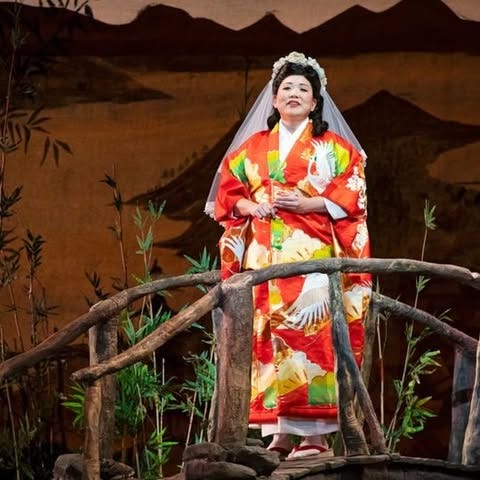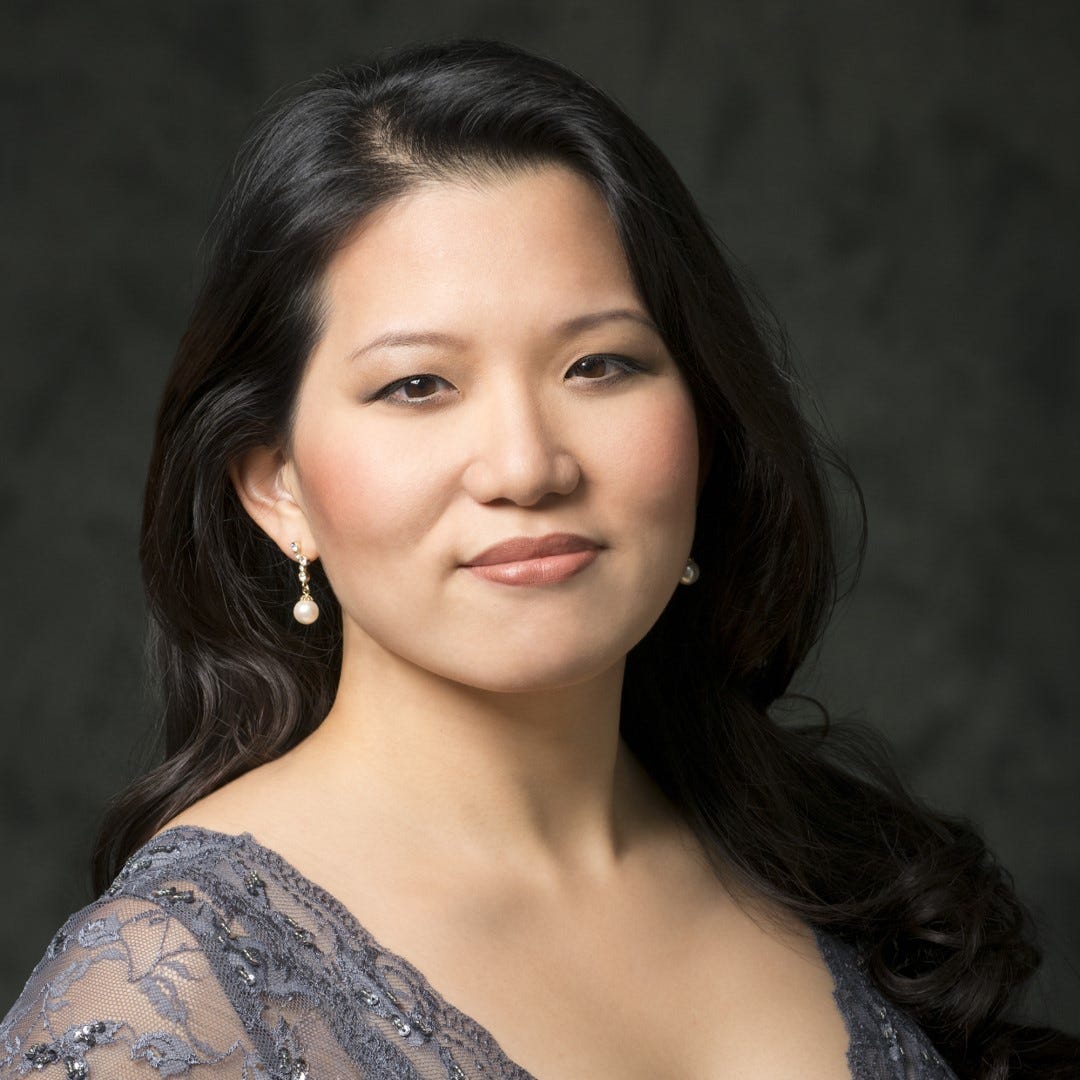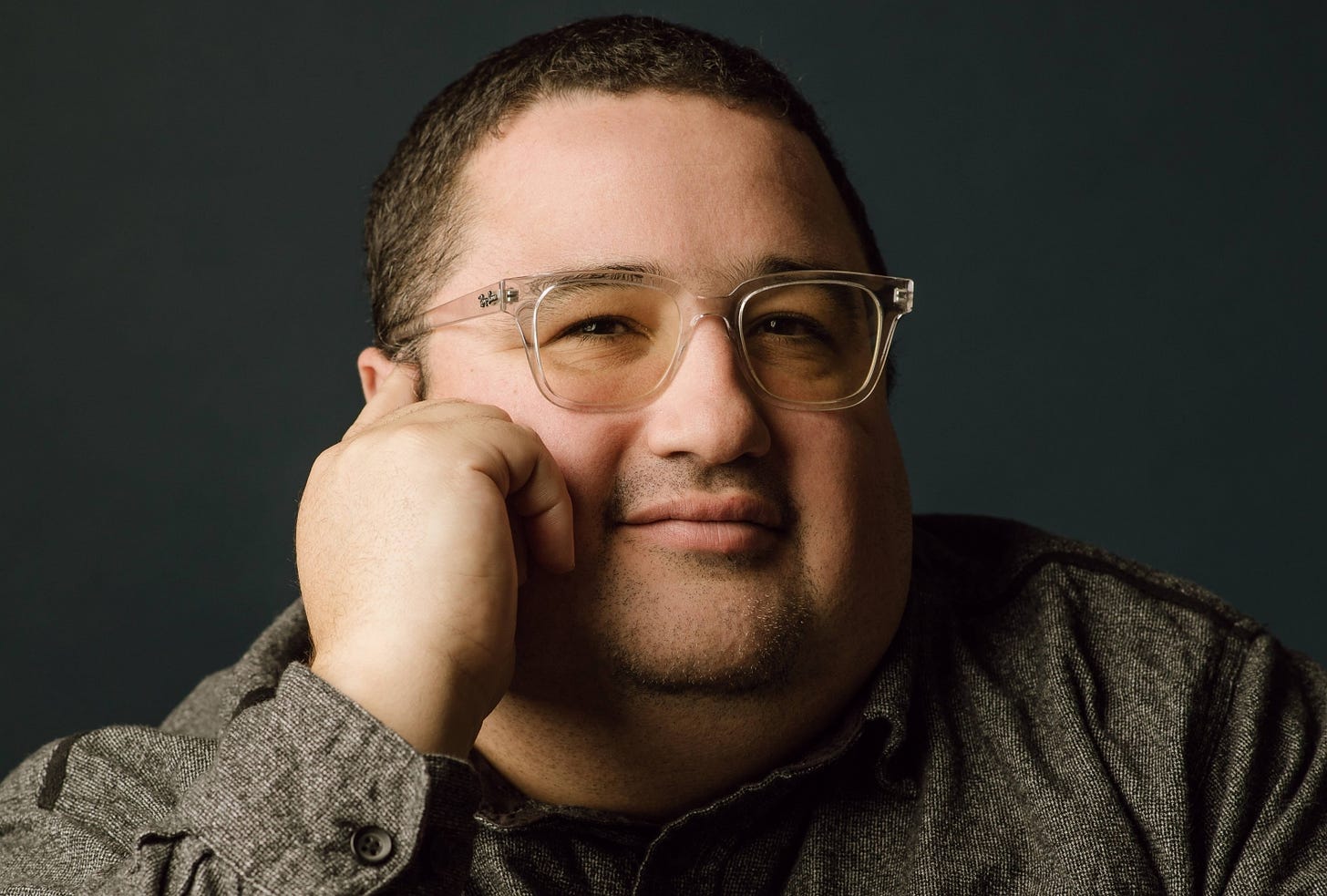When Two Butterflies Meet
Sopranos Karen Chia-ling Ho and Yasko Sato discuss sharing the role of Cio-Cio San and their unique approaches to the character.
LISTEN TO THE EPISODE
You can download this podcast on all major platforms including Apple Podcasts and Spotify.
READ THE TRANSCRIPT
Ashley Daniel Foot:
We're Inside Vancouver Opera and I'm Ashley Daniel Foot. Today we're joined by two extraordinary sopranos, Yasko Sato and Karen Chia-ling Ho. Yasko and Karen are double cast in the role of Cio-Cio San in our upcoming production of Madama Butterfly, running April 26th to May 4th at the Queen Elizabeth Theatre.
Yasko Sato is a soprano from Japan who studied at the Tokyo National University of Fine Arts and Music. She has performed Cio-Cio San countless times, in many countries, and is known for her exquisite voice and deep emotional connection to the role.
Karen Chia-ling Ho is a soprano from Taiwan who now makes her home in the United States. She earned her first master's degree in Taiwan, her second from the Eastman School of Music, and holds an Opera Artist Diploma from the College-Conservatory of Music in Cincinnati. She has sung with opera companies across North America and Europe and brings power and nuance to a wide range of roles.
We are so glad to have Yasko and Karen with us today.
Yasko, you grew up in Japan and studied music in Tokyo. What first inspired you to pursue a life in opera?
Yasko Sato:
Honestly, at the first, I would like to be a pianist, but my professor said to me, "No, no, you are starting very late. You lost. The last train is much too late," because I started to play the piano when I was eight years old. In Japan, it was too late.
Ashley Daniel Foot:
Wow, it was too late?!
Yasko Sato:
Yes, but it was right. Professor said to me, "But you very much like to sing in the chorus." "Yes, I do." And she said to me, "Why don’t you study lyrical opera, lyric singing?" "Oh, why not?" I started to sing, to study, the lyric and it's why. I fell in love with the lyric.
Ashley Daniel Foot:
Amazing! So you both started singing in choirs. Karen, you started to sing in a choir in Taiwan. Do you remember a moment when you also thought, "I want to do this for the rest of my life?"
Karen Chia-ling Ho:
I think I wanted to be a singer. When I decided that, I was pretty young, like when I was maybe ninth grade? I told my mom, "Oh, I want to be a singer." So she started to take me to lessons, to piano lessons, to singing lessons. And then, I took a test and I went to music school for my high school and then started there. But I never fell in love with opera.
Yasko Sato:
No?
Karen Chia-ling Ho:
No, not until I came to the States.
Ashley Daniel Foot:
Do you remember one of the first songs that you had to learn when you started to sing music? Was it those 18 art songs that everyone learns?
Karen Chia-ling Ho:
Yes. Yes!
Ashley Daniel Foot:
Do you have a particular favourite from that book?
Karen Chia-ling Ho:
Not really. Those songs are very pretty, but now I love Puccini, more romantic.
Ashley Daniel Foot:
Absolutely. So you both performed this role before, it's fair to say. Yasko, you said before we started, "Countless times." This production, however, is different.
When you first learned it would be set during the US occupation of Japan, how did you start to think about your role in a new way? Maybe I'll start with you, Yasko.
Yasko Sato:
So yes, and the situation in occupation by America was a little bit hard, the first time I heard. But studying with Mo Zhou, yes, now I think it could be very interesting to show more the Japanese character and the impact between the Western world and Eastern one. Yes, it could be very functional.
Ashley Daniel Foot:
Karen, what do you think about all of this?
Karen Chia-ling Ho:
The original concept, like buying the wife, it's still happening in Asia. In Taiwan, there are so many guys, they will go to Vietnam, they will go to South Asia to buy wives back to Taiwan. For the original concept, I was pretty accepted. But when Mo told me about her idea, I feel more echoing in my heart with her concept.
Ashley Daniel Foot:
This Butterfly, as Mo Zhou has talked about, the director, this Butterfly is not about giving up. She says that the history imbues the character with a sense of history and a backbone of understanding her own survival. How do you bring that inner strength into your voice onto the stage, Karen?
Karen Chia-ling Ho:
I didn't really try to bring anything else. I do whatever my heart feels. Under this concept, the war bride, it adds up more layers towards the character. Because sometimes I would think like, oh, so does this butterfly has post-war trauma?
Or what kind of stress she was under besides marrying a foreigner and then getting disowned by her own family? Also, during the rehearsal process, I can explore more layers on it. So yeah, I didn't try to add things, I just feel it.
Ashley Daniel Foot:
Wow. I have to say audiences, when they see both of you in this role ... I personally think everyone should come twice because you're both so moving, so deeply touching. What does that do for both of you to sing this role as many times as you have? You must leave something on that stage. How do you feel having done it so many times, Yasko?
Yasko Sato:
Honestly, the first time I listened to this role, this opera, it was very strange for me because honestly, Cio-Cio San's character is not very real Japanese. It is very mixed with Japanese stamp character, with the Japanese ancient music and Western one.
The character of Butterfly is middle Italian-Western, and at most, Italian and Japanese. So it's very hard. And also the text of Butterfly is very direct, right? "All you doubt, doubt, doubt. Tell me again, I will kill you!" It's very direct. It's not Verdi's text, "Oh my goodness, my fate!" No, no, it's very close to our world.
The words of Butterfly are very direct, it's very passionate. But we have to sing, we don't have to shout, right? And so keeping this in mind with the fresh head, cool head, and expressing correctly is very difficult, right?
Ashley Daniel Foot:
That's really interesting, Yasko. And I think what you mentioned is so profound, that you're singing emotion in many ways. How do you access that in an authentic way with all of the technique that you've clearly built up over time? Is there a moment where technique becomes subservient to emotion?
Yasko Sato:
In my room with my vocal coach, the studying is very easy, but in the rehearsal room with acting, it's very difficult. It's very different. And I am suffering yet to connect the two worlds.
Ashley Daniel Foot:
Wow! Mo, our director, has talked about this production as a reclamation, telling the story from inside Cio-Cio San's world, not from the outside looking in, which is traditionally how she feels the opera has been presented. Do you feel that, Karen, when you see Mo's vision?
Karen Chia-ling Ho:
Yeah, I can feel that. People say the traditional version, it's from a Westerner’s point of view.
Ashley Daniel Foot:
Yeah, a Western gaze, right?
Karen Chia-ling Ho:
Yeah. The staging, they would put so much stereotype acting, stereotype movement. Or the director even would say like, "Oh, so Butterfly, she's a prostitute." I was like, "No, she's not." But here, I feel like Mo just changed the whole story to more follow the history of events, so it's more truthful for me.
Ashley Daniel Foot:
I agree. And I think it's really very powerful to see what Mo has done with this story, and it's heartbreaking to me to hear you describe how some of the ways that other people have seen this character, and it's one that's clearly been, since it premiered in 1904, a complicated story.
You've worked with Mo before, in fact, you were roommates at Glimmerglass.
Karen Chia-ling Ho:
Yes.
Ashley Daniel Foot:
And then in New York City. What is it like to work with Mo in the room?
Karen Chia-ling Ho:
When we were living together, we were still very young, we were still young artists, still figuring out our career. And then she was like, every day, we would cry and then venting about like, "Oh, we're not going to have a career. It's so hard, blah, blah, blah." But who knows? We've come so far and then we work together, finally.
Working with her, I also see how much she grew during these 10 years. She became a pretty mature director, and I like her directing technique. She tries to divide her time and then use her time very efficiently. Her pace is really, really fast, so we finished all the staging in how many days? Three, four days? Within one week.
Ashley Daniel Foot:
Wow, yes. No, it's unprecedented.
Tell us what an average day for you looks like as you prepare for Madama Butterfly. Take us through your process, if you can.
Karen Chia-ling Ho:
This is my seventh production, so I feel Butterfly is in my body already, so I wasn't really prepared for it. Just every time, when I go into the rehearsal, I just keep open-minded and then keep to try to absorb everything the director gives me, and then try to make it reasonable for myself.
Ashley Daniel Foot:
Yasko, is there anything new that you discover when you perform this each time, do you think? Or do you think you've uncovered all of Cio-Cio San's secrets?
Yasko Sato:
No. No, no, no, no. Definitely not! And yes, I’ve starred in many Madama Butterfly and also each version from, the first version, in Milano, and Brescia, and Paris, and definitely this version. But every single time to go into the new production, it's brand new.
Ashley Daniel Foot:
Wow!
Yasko Sato:
Incredible! And this is why that I stopped counting how many productions, because this doesn't mean anyway, because every time is first time for me.
Ashley Daniel Foot:
Why should Vancouver audiences come and see this production of Madama Butterfly?
Yasko Sato:
Oh my goodness. Because my decision and my affirmation is Butterfly is not only Japanese, Butterfly is cosmopolitan. Only Japanese woman lives with dignity? No. Right? She could be in everywhere in the world and fighting with her cruel fate. This courage is very important, it's very fascinated in all of the world.
And I hope that Vancouver people could see this right of dignity from Butterfly. This is not Japanese, this is all of the world. So maybe they would like to see this light, this hope from Butterfly. This is why to come to visit our Butterfly.
Karen Chia-ling Ho:
This Butterfly is definitely different. I feel like it's combined the traditional version and the modern version. Because the story itself, I think most still try to keep the traditional part, like showing people the Japanese manners, Japanese clothing, the culture, but also apply her story into this. I feel this production is a real Western meets Eastern.
And of course, people have to come to see two times, because me and Yasko, we are very different. And I have to say, I learned a lot from Yasko, because her approach to Butterfly is very different. For me, I feel like Butterfly was a naive girl, but Yasko's has more deeper layers. Because of course, it's Japanese, it's within her body, her mind. I learned so much from her, and then she gave me another side of Butterfly.
Ashley Daniel Foot:
That's beautiful.
Yasko Sato:
Me too. I am learning a lot with Karen. So cute and very naive, right? Yes, it's absolutely stunning!
Ashley Daniel Foot:
Aw, I love to hear this. Karen, what advice do you have for young Asian singers who are dreaming of a place in opera, maybe singing this particular part or others? Is there anything that you would want to share?
Karen Chia-ling Ho:
This career is really hard, so of course, you have to work on yourself endlessly. You have to find a good teacher, a good coach, and then work on yourself first. Get prepared, and then you go out to this world and try. And then if it's not working, it's all right, because there are so many ways you can work in the arts, in the music industry. If it works, you are the lucky one, just like us.
Ashley Daniel Foot:
What does it feel like when you are singing well? What does it feel like to know that you've hit your stride musically?
Karen Chia-ling Ho:
If you asked me this question two years ago, I would give you a completely different answer. So last year ... It's a story, I'll make it short. Last year, I was really busy with different gigs, so I wasn't really rest well. So I had some vocal problem. I had a polyp on my vocal chord.
Ashley Daniel Foot:
Oh my goodness!
Karen Chia-ling Ho:
It was really hard for me, because I took steroids. I go see different ENT doctors in different cities. I even went on vocal silence for weeks, or 10 days.
Ashley Daniel Foot:
That must have been brutal!
Karen Chia-ling Ho:
Yeah! But I was really lucky because some the opera companies I worked with, after I explained my situation, they trusted me. They gave me time and space. And then after that, I rest a little bit. I had voice therapy, and then thank goodness, the polyp was gone. So I didn't need to do laser surgery.
Ashley Daniel Foot:
Thank goodness!
Karen Chia-ling Ho:
So after that, for me, what I feel what I did was really good. I would tell you, if I can sing through the whole opera with my true heart and my voice, that'll be a good performance for me, for myself. Then of course, the bonus, if the audience love it, that's perfect!
Ashley Daniel Foot:
That's absolutely fantastic and so moving to hear you say this! Imagine that both of your two Butterflies met together and saw each other. What would happen if you two met in the world? What kind of duet do you think you would sing? What would it sound like?
Karen Chia-ling Ho:
Oh, I don't know. What's your favourite warm-up?
Yasko Sato:
Warming up for me, I have to do from three hours before my performance.
Ashley Daniel Foot:
Wow!
Yasko Sato:
Yes, I have to do exercise before, to warm up my body, and I have to find the correct point to make the larynx. Yes, I have to do it very slowly without stress. And yes, my warming up is very long, too long, maybe.
Karen Chia-ling Ho:
Everybody's different!
Yasko Sato:
Maybe I can sing the Lullaby of Butterfly. The original one is very Japanese with Japanese scale, in pentatonic scale, no?
Ashley Daniel Foot:
Yeah, pentatonic.
Yasko Sato:
This is like this.
Ashley Daniel Foot:
Beautiful!
Yasko Sato:
And Puccini transformed this phrase, yes, this melody in Western one. Yes, but you have to hear this with orchestra, right? It's very definitely different.
Ashley Daniel Foot:
This is just a tiny preview. Wow! You have given us the biggest gift. Thank you!
We're so grateful to Yasko and Karen for joining us today and sharing their voices, stories, and their hard-won insights. Madama Butterfly runs from April 26 to May 4th at the Queen Elizabeth Theatre and features these two brilliant sopranos in the role of Cio-Cio San.
Tickets and information are available at VancouverOpera.ca. As always, thanks to my producer Mack McGillivray, and thanks to you for listening. And I'll see you at the opera.
Karen Chia-ling Ho - Cio-Cio San - April 27th & May 4th
This season, Karen Chia-ling Ho debuts as Mimì in La bohème with the San Francisco Opera and sings Cio-Cio-San in Puccini’s Madama Butterfly with Florentine Opera Company, Parnassus Society, and Vancouver Opera. She was a member of the Merola Opera Program of the San Francisco Opera and holds degrees from the Universities of TNUA and Tung-Hai, the Eastman School of Music, and an Artist Diploma from the College-Conservatory of Music in Cincinnati.
Yasko Sato - Cio-Cio San - April 26th, May 1st & 3rd
Yasko Sato graduated with highest honours from Tokyo National University of Fine Arts and Music, Yasko Sato completed her training in Italy under the guidance of Raina Kabaivanska. After her first debuts in Italy and Tokyo, and after her critically acclaimed debut in Madama Butterfly in Sabadell (Spain), she has had the opportunity of singing the role of Cio-Cio-San on some of the most important stages all across Europe, America and Asia.
Ashley Daniel Foot - Host of Inside Vancouver Opera
Ashley is Vancouver Opera’s Director of Engagement and Civic Practice and host of Inside Vancouver Opera. Boundlessly creative and fascinated by the way that art is created and presented, Ashley has guided arts organizations across Canada to craft messages and tell unique stories.
Mack McGillivray - Producer
Mack is a multimedia producer, creating shows for radio and podcast. He is passionate about cultivating local community and a lifelong lover of opera.














